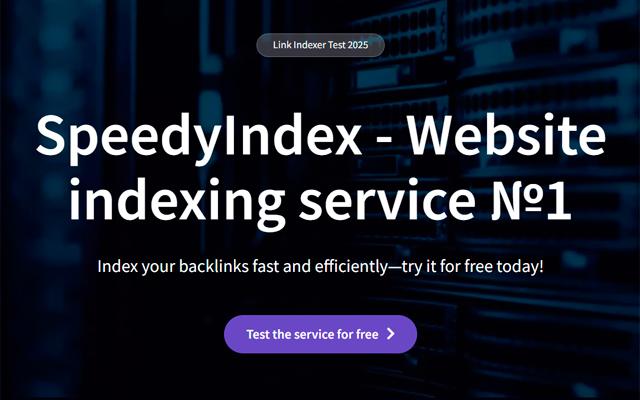In some sort of overflowing with digital information, indexing services are becoming required for organizing and retrieving data efficiently. At the most basic level, indexing describes the procedure URL submission tool of categorizing and structuring information therefore it are available quickly when needed. Whether it's a search engine indexing webpages, a collection cataloging research papers, or a company organizing its internal documents, indexing services play a major role in accessibility and productivity.
One of the most recognized types of indexing is search engine indexing. Websites rely heavily on services from platforms like Google to make certain their content is discovered by users. When pages are properly indexed, they appear in relevant search results, increasing visibility and traffic. This process involves analyzing website content, metadata, keywords, and structure to greatly help search engines understand and rank the material accurately. Without indexing, even high-quality content can remain unseen.
Beyond the net, indexing services are vital in academic and research environments. Journals, libraries, and digital repositories use indexing to archive and organize publications for students, researchers, and professionals. When papers are a part of respected indexing databases like Scopus or Web of Science, their credibility and reach often increase significantly. Effective indexing in these fields helps preserve knowledge, support academic integrity, and make scientific discoveries more accessible.
Indexing services also play a significant role in business and enterprise settings. Organizations manage massive volumes of digital files—legal documents, reports, contracts, and communications. With out a structured indexing system, retrieving important information can become time-consuming and inefficient. Automated indexing solutions, powered by tags, metadata, and artificial intelligence, help streamline workflows, support compliance, and improve knowledge management across departments.
As technology evolves, indexing services are becoming more advanced and adaptable. Artificial intelligence and machine learning are now being used to categorize content more accurately, reduce manual effort, and enhance search performance. From improving SEO to organizing research to managing corporate data, indexing services form the unseen backbone of modern information systems. Their role will only grow as digital content continues to expand across industries.
One of the most recognized types of indexing is search engine indexing. Websites rely heavily on services from platforms like Google to make certain their content is discovered by users. When pages are properly indexed, they appear in relevant search results, increasing visibility and traffic. This process involves analyzing website content, metadata, keywords, and structure to greatly help search engines understand and rank the material accurately. Without indexing, even high-quality content can remain unseen.
Beyond the net, indexing services are vital in academic and research environments. Journals, libraries, and digital repositories use indexing to archive and organize publications for students, researchers, and professionals. When papers are a part of respected indexing databases like Scopus or Web of Science, their credibility and reach often increase significantly. Effective indexing in these fields helps preserve knowledge, support academic integrity, and make scientific discoveries more accessible.
Indexing services also play a significant role in business and enterprise settings. Organizations manage massive volumes of digital files—legal documents, reports, contracts, and communications. With out a structured indexing system, retrieving important information can become time-consuming and inefficient. Automated indexing solutions, powered by tags, metadata, and artificial intelligence, help streamline workflows, support compliance, and improve knowledge management across departments.
As technology evolves, indexing services are becoming more advanced and adaptable. Artificial intelligence and machine learning are now being used to categorize content more accurately, reduce manual effort, and enhance search performance. From improving SEO to organizing research to managing corporate data, indexing services form the unseen backbone of modern information systems. Their role will only grow as digital content continues to expand across industries.
